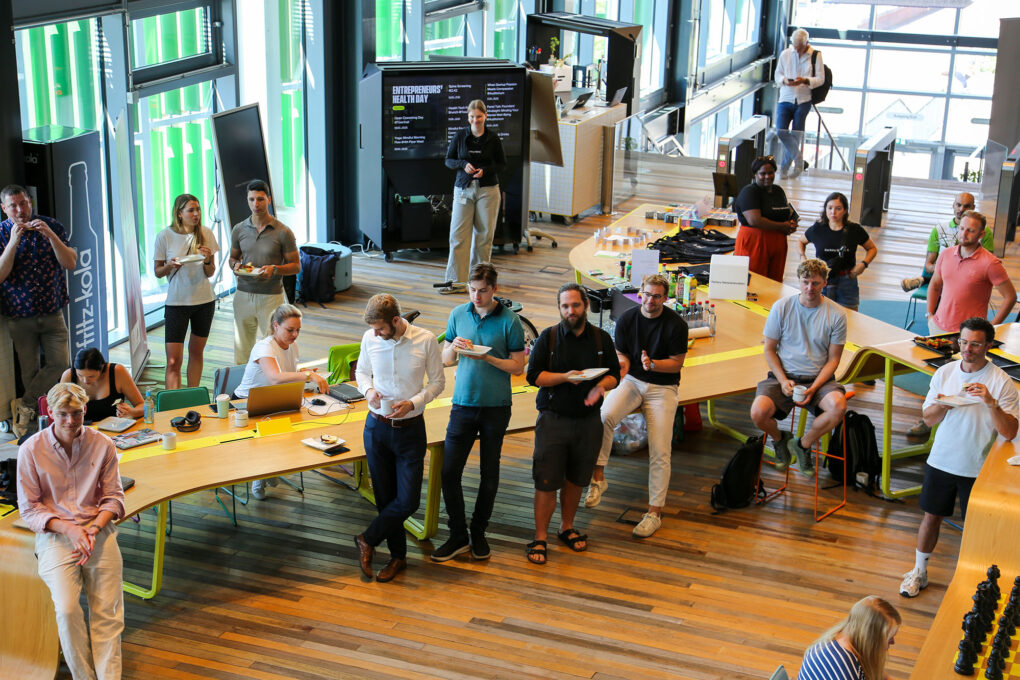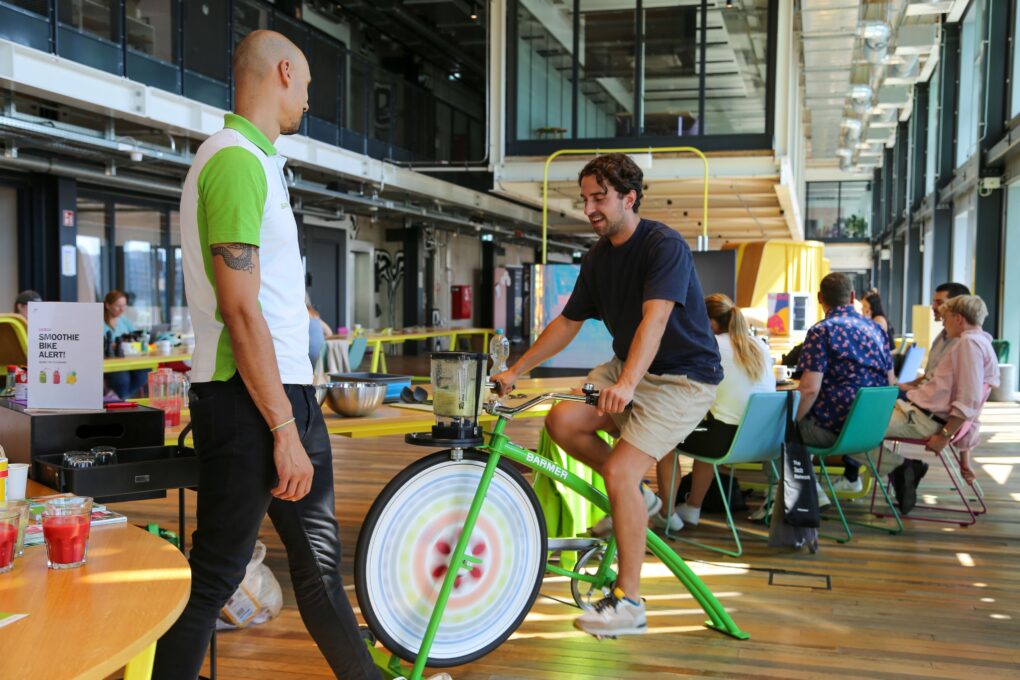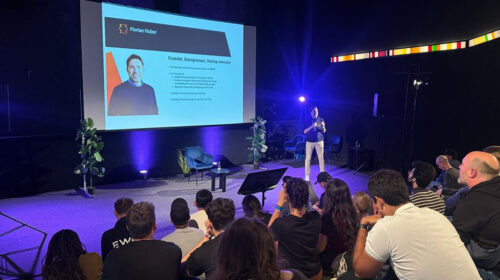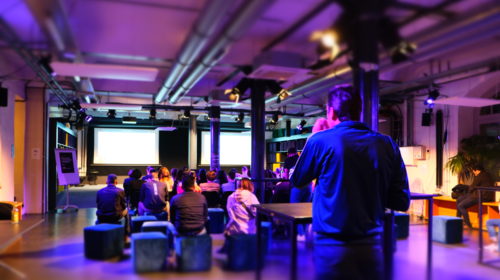
August 21, 2024
Highlighting the Hidden Struggle of Mental Health in the Startup World
When we think of entrepreneurs and the startup scene, we think of fast-paced environments, influential changemakers, innovation, technology, and the future. We envision individuals who thrive on success, work 80-hour weeks, push boundaries, and overcome hurdles with unwavering determination. A narrative in which nothing seems impossible and wherein each challenge has the potential to make us stronger, wiser, and more successful.
But what if that was only one side of the story? What if we discovered that behind the glossy veneer of entrepreneurial success, as depicted on LinkedIn, in TED Talks and other keynote speeches and features, lay a different story – one of stress, burnout, and mental health challenges?
We’d have to talk about it — and that’s exactly what we did last week in Hamburg at Factory Hammerbrooklyn during our Entrepreneur’s Health Day. Together with Barmer and the Mindful Startup School, we explored the power of mindfulness and tried out new healthy habits, but above all, we opened up and shared our personal stories — an impactful experience for two reasons:
Firstly, the stigma around mental health remains strong. Closeted and silenced, the majority of adults today choose not to talk about their mental health concerns, for fear of being judged, or devalued in their abilities.
Secondly, it’s always easier to talk about successes than failures — especially in the startup ecosystem. Here, “unicorn” stories and overnight wins, continue to dominate headlines that implicitly drive the expectation for every founder to achieve extraordinary results above anything else. A narrative that adds to the unique pressures founders face daily.

As one-[wo]man shows, the entrepreneurial journey is often a solitary one, where the weight of success or failure rests heavily on the founders’ shoulders alone and soon becomes a defining entity of their person as a whole. Yet as startups are, by their very nature, temporary organizations designed to seek scalable and sustainable business models, founders are forced to engage in endless cycles of unforeseen setbacks, and continuous uncertainties, including failures. The bearer of this brunt becomes the body and mind, however, all warning signs are frequently ignored in the rush to meet the next milestone or secure the next round of funding. Building resilience in this environment is therefore a great challenge — especially, if you think you are struggling with it alone.
Looking around, as we sat listening to Dr. Malte Krohn, Anne Lamp, Christian Sigmund, Wilfried Gillrath, and Heidrun Twesten relay their stories, one could experience an audience that resonated with an encouraging warmth. The honesty and vulnerability of the speakers were not only met with understanding but with empathy. And with each new anecdote, one thing became clearer: we’re all in this together. Instead of demonstrating weakness, the shared vulnerability became a source of connection. It highlighted the gap in mental health awareness within the founding ecosystem, but it allowed for a collective discovery of similar experiences, thoughts, and struggles and laid the foundation for a more supportive founder’s community.
So what to do to prevent your mental and bodily health from declining to a point of no return? Firstly, practice self-care and self–awareness.
“Whether this is regular exercise and eating right, spending time with loved ones or taking a nap, or watching an entire season on Netflix over one weekend while you lounge around in your pajamas. Whatever soothes your soul is right.”

Secondly, share your struggles and seek advice from your close circle, as soon as you notice the first signs of distress. Don’t wait. Your vulnerability is what makes you human. Thirdly, detach your company success, from your personal success. You are not your company.
As the Entrepreneur’s Health Day came to a close, the atmosphere was one of both relief and determination. Relief in knowing that as founders we were not alone, and determination to bring these hidden struggles to the forefront and into every normal conversation. The event proved that by embracing honest and open dialogue, the entrepreneurial community can begin to address the mental health challenges that have long been swept under the rug. As one attendee aptly put it, “Today, we didn’t just talk about building successful companies; we talked about building sustainable, healthy lives as founders. And that’s the true foundation of any lasting success.”
As the startup world continues to evolve, events like the Entrepreneur’s Health Day, serve as crucial reminders that behind every innovative product or disruptive service stand human beings navigating immense pressures and responsibilities. By prioritizing mental health alongside business growth, the entrepreneurial community can work towards a future where success is measured not just in valuations and market share, but in the well-being and resilience of its founders.
With the official World Mental Health Day on October 10th just around the corner, I’d like to conclude with Dr. Krohn’s words:
“Taking care of ourselves is not only allowed, it's essential because only healthy founders can build healthy teams and organizations. [While] none of us are meant to walk this path alone, [our sharing of experiences creates] space for others to do the same. ”

